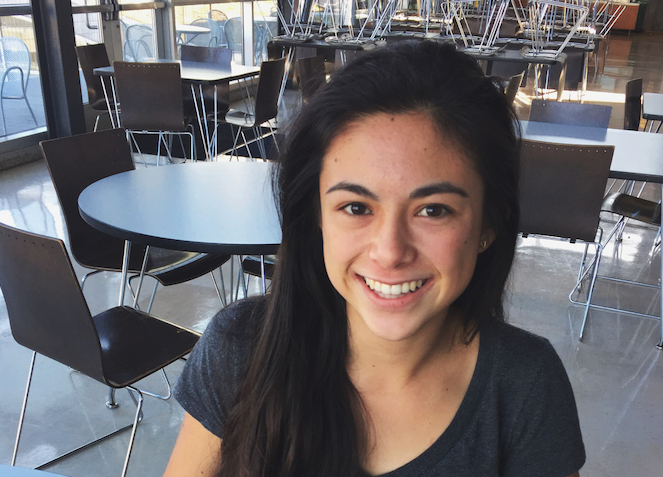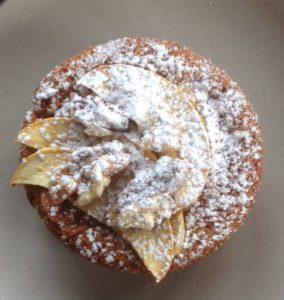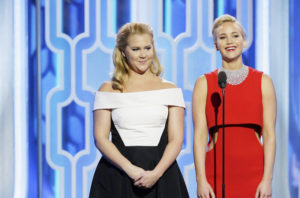PT Online: Tell me a little bit about your independent study, why you chose to do this, what is your guiding question or thesis?
Clara Liang: My independent study is on food, and more specifically food culture in America, and the history of food in America. It had to be a PPP course, so it kind of turned into also looking at food justice, and different food movements. And so it kind of started with my brother, who’s in college, who is taking a food justice course. He’s been sending me all his readings, that the basis for my study in the beginning. I was going to look through his syllabus. I started meeting with Dr. Shimek — she’s an English teacher, so her take was more looking at the stories that food can tell and the way food fits into society in terms of gender, race, and economics. I began to incorporate that into my study perspective as well, which has been really interesting. The PPP part — I didn’t really want to focus on one thing, one organization, my plan, which I’ve kind of started developing, is going to volunteer at different places that vary; I worked at Green Gulch, which is like a Zen Center, in their kitchen. I’m writing journal entries, blog post things, about what each organization does, if people want to do work there in the future.
PT Online: Okay, so this is a PPP independent study?
CL: Yes, I also have a blog. It’s kind of a mix of many different things, it’s semi-casual. It’s partially informative — I’ve done some readings on food justice movements, and read different books about food, and things like that. One really interesting book that I started with was this book by Laura Shapiro about women in the 50’s and fast food, and the development of fast food as America’s food culture. And how women and home cooking played into that. The blog is partially informative and partially reviews on different essays and books about food. It’s also partially interviews with people, like oral histories, stories about food and how food shapes people’s lives. It also includes some poems that I’ve written, which was Dr. Shimek’s suggestion. There are some links to interesting articles about food. The guiding question is kind of looking at why we eat what we eat in America. So many other cultures have definitive food cultures, like you can think of Japanese food, or Italian food, or French food, but America doesn’t really have a food culture to be proud of. Kind of fast food — when people think of American food they think of hamburgers and french fries, or like, organic food, but that’s more of an elitist thing, which is really hard in the food justice movement. People think of organic food, healthy fresh food as a really elitist thing even if it doesn’t necessarily have to be. Also, the blog looks at how food culture shapes our lives, and how we can be more mindful of what we choose to buy and consume.
PT Online: Why did you choose Dr. Shimek specifically, and how has she helped you shape this independent study?
CL: Well, last year, I was in her English class, and we did this project on oral histories and telling stories. She told a story about cooking and her family, and how she’s kind of — I don’t think she used the word “food snob,” but that was kind of the implication — that she’s very picky about where she got her food. I know her because I took English with her, and that’s how I chose her. But she’s been really influential in getting me to be more creative about it. Initially, I was like, “oh, I can write these essays, and do research.” I had ideas when I was outlining the course. She was like, it’ll probably be more effective to have a place where you can just be creative and be productive in a way that’s not typical of high school.
PT Online: What does a typical meeting look like, and what kind of homework do you assign yourself?
CL: I really wanted to focus on writing in this course, and so a lot of the work I assign myself is just writing. So, I have a blog, that’s where I share most of my writing. Usually in between when we meet I try to do some sort of volunteer work, and then have something to write about. Or, I do some reading on food justice. Right now, I’m reading “Women in Food Chains: The Gendered Politics of Food.” And I do some sort of writing about that. And then during our meetings she just reviews them, and looks at them. We have conversations, and talk about what I want to continue looking into, what I want to explore.
PT Online: Is there anything else you’d like to say about independent studies, why you did one, why someone else should do one?
CL: I think the coolest thing is you have a platform to show what you want to show, and be productive in a creative way. At Lick, you get structured ways to show what you can do, but I think it’s pretty fulfilling to see that you can do things even if you’re not assigned them specifically. Like, what you can make just from your own motivation. It’s been very distracting from all my other schoolwork. In a good way.








